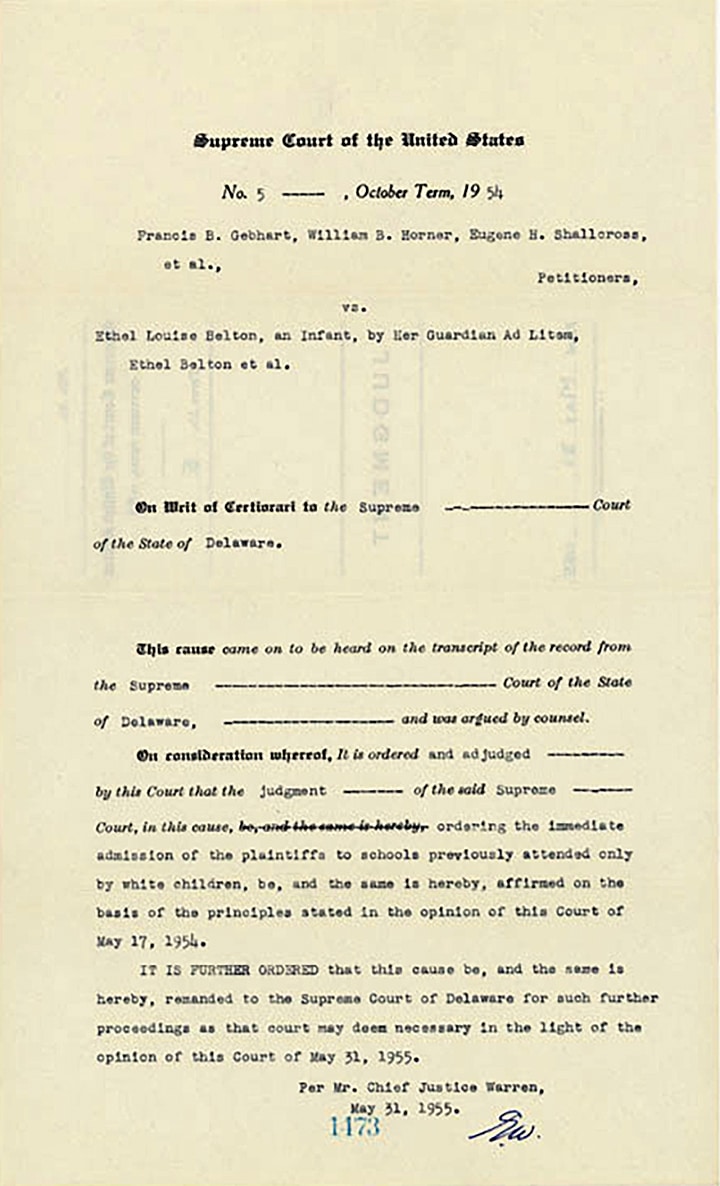RESOURCES
COURT CASES
Belton v. Gebhart
1951
Belton v. Gebhart (consolidated with Bulah v. Gebhart) was a Delaware school desegregation case and one of the five cases combined into Brown v. Board of Education (1954). Filed in 1951, it was the only one of the five in which the lower court ruled in favor of the plaintiffs, ordering that Black children be admitted to white schools—making it unique among the Brown cases.
(Belton v. Gebhart)… mark(ed) the only instance before Brown where a state court ordered the immediate desegregation of public schools.
The case was brought by Ethel Belton and other African American parents with support from the NAACP, including attorneys Louis Redding (Delaware’s first Black lawyer) and Jack Greenberg of the NAACP Legal Defense Fund. The plaintiffs argued that the Black schools in Claymont and Hockessin, Delaware, were not only separate but grossly unequal in terms of resources, facilities, and opportunities compared to nearby white schools.
The Delaware Court of Chancery, under Chancellor Collins J. Seitz, found that the Black schools were indeed inferior and that no remedy short of integration would meet constitutional requirements. He ruled that African American students must be admitted to white schools—marking the only instance before Brown where a state court ordered the immediate desegregation of public schools. This decision was later affirmed by the Delaware Supreme Court, although the state’s Board of Education appealed to the U.S. Supreme Court.
When the Supreme Court consolidated five school segregation cases under Brown v. Board of Education, Belton v. Gebhart was included and played a critical role. Though Brown addressed the principle that “separate but equal” was inherently unequal, the Belton case provided a live, court-ordered example of integration in progress—offering the justices a real-world reference that desegregation was not only necessary but already underway in some places. As such, Belton v. Gebhart helped strengthen the legal and moral foundation for the Court’s unanimous ruling in Brown, which overturned Plessy v. Ferguson in public education nationwide.
